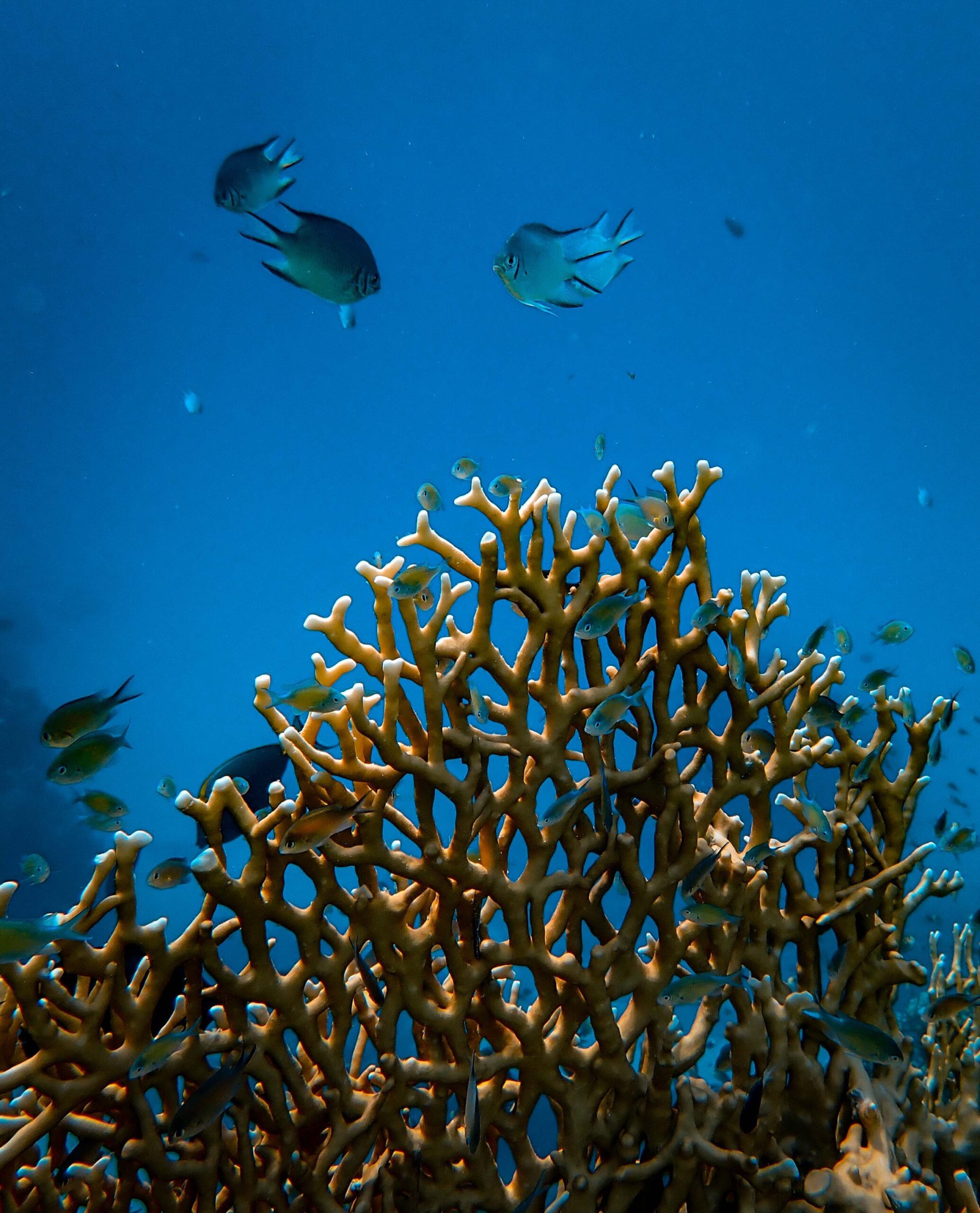Introduction
As our oceans face unprecedented threats from climate change, overfishing, and pollution, the need for robust conservation initiatives has never been more critical. In this exploration, we delve into the potential of sustainable tourism to not only mitigate the impact of traditional tourism practices but also actively contribute to financing ocean conservation efforts. By aligning travel activities with environmental preservation, sustainable tourism emerges as a beacon of hope for our planet’s oceans.
Understanding Sustainable Tourism
Definition and Principles of Sustainable Tourism
Sustainable tourism is a responsible approach to travel that aims to minimize the negative impact on the environment, support local communities, and promote cultural preservation. At its core, it seeks to balance the economic benefits of tourism with the conservation of natural resources and the well-being of local populations. Principles of sustainable tourism include environmental protection, social responsibility, and economic viability. It encourages travelers to be mindful of their ecological footprint and cultural influence while fostering a positive and lasting experience for all stakeholders involved.
How Sustainable Tourism Differs from Traditional Tourism Practices
Unlike traditional tourism, which often focuses solely on economic gains and overlooks environmental and social consequences, sustainable tourism takes a holistic approach. Traditional tourism may exploit natural resources, contribute to over-tourism, and disregard local cultures. In contrast, sustainable tourism prioritizes long-term sustainability, seeking to minimize environmental degradation, respect local traditions, and ensure the well-being of host communities. It encourages travelers to be more conscious of their impact, supporting initiatives that promote responsible travel and positive contributions to destinations.
Emphasizing the Importance of Minimizing Environmental Impact
A key emphasis in sustainable tourism is the imperative to reduce environmental impact. This involves implementing eco-friendly practices such as waste reduction, energy efficiency, and conservation of biodiversity. Sustainable tourism destinations often engage in responsible resource management, striving to preserve the natural beauty and ecological integrity of their surroundings. By choosing sustainable accommodations, supporting eco-friendly activities, and respecting local ecosystems, travelers contribute to the preservation of delicate environments, ensuring they remain vibrant and accessible for generations to come.
Economic Benefits of Sustainable Tourism for Coastal Communities
Discussion on the Economic Advantages for Local Communities
Sustainable tourism serves as a catalyst for economic growth within coastal communities. Unlike traditional tourism, sustainable practices ensure that the influx of visitors aligns with the preservation of natural resources, thus fostering long-term economic stability. Local economies experience a boost as tourists engage in responsible activities, contributing to the purchase of local goods and services. This symbiotic relationship not only enhances the economic well-being of coastal communities but also encourages responsible tourism practices.
The economic advantages are evident in the growth of small businesses, from local eateries offering authentic cuisine to artisans selling handmade crafts. Additionally, sustainable tourism often promotes collaboration between local businesses, leading to the development of community-based enterprises. This interconnected network of businesses amplifies the economic impact and creates a resilient foundation for coastal communities.
Creation of Jobs and Income Opportunities
One of the most significant economic benefits of sustainable tourism is the creation of jobs and income opportunities for local residents. As the demand for sustainable travel experiences rises, so does the need for skilled workers in various sectors. From eco-guides and conservation officers to hospitality staff trained in sustainable practices, the job market diversifies, offering employment avenues for a broad spectrum of community members.
Moreover, sustainable tourism fosters skill development within the local workforce. Training programs focused on environmental conservation, cultural preservation, and responsible tourism practices empower individuals to contribute meaningfully to their community’s economic growth. This not only enhances employability but also ensures a workforce that understands and values the importance of maintaining a delicate balance between tourism and the environment.
Examples of Successful Sustainable Tourism Initiatives Supporting Ocean Conservation
Several sustainable tourism initiatives have successfully supported ocean conservation while contributing to the economic prosperity of coastal communities. The creation of marine protected areas, coupled with responsible tourism guidelines, has enabled communities to capitalize on their natural assets without compromising long-term environmental health.
For instance, eco-friendly snorkeling tours that educate participants on marine life and conservation efforts have gained popularity. Revenue generated from these tours often directly funds local marine conservation projects. Similarly, sustainable seafood festivals showcase local culinary delights while raising awareness about responsible fishing practices.

Impact of Unsustainable Tourism on Marine Biodiversity
Irresponsible tourism poses a significant threat to marine biodiversity worldwide. From coral reefs to marine ecosystems, the negative impacts of unsustainable tourism practices are far-reaching. Activities such as overfishing, anchor damage, and pollution from cruise ships contribute to the degradation of delicate marine environments. The decline of coral reefs and the loss of biodiversity within marine ecosystems are alarming consequences of unchecked tourism activities. It is crucial to understand these impacts to advocate for responsible tourism practices that can mitigate the damage.
How Responsible Tourism Practices Can Contribute to Biodiversity Conservation
Responsible tourism plays a pivotal role in preserving biodiversity, especially in ecologically sensitive areas like marine environments. By adopting sustainable practices, such as promoting low-impact tourism, educating visitors about the fragility of ecosystems, and enforcing strict regulations, destinations can minimize their environmental footprint. Supporting local conservation initiatives and engaging in community-based tourism also contribute to the protection of biodiversity. Responsible tourism is a powerful tool that, when implemented conscientiously, can help conserve and even restore the delicate balance of ecosystems.
Case Studies Showcasing Positive Outcomes of Biodiversity Preservation Through Sustainable Tourism
Several case studies around the world highlight the positive impacts of responsible tourism on biodiversity preservation. One such example is the Galápagos Islands, where strict regulations on visitor numbers and activities have helped protect the unique flora and fauna. In Thailand, marine national parks have successfully implemented sustainable tourism practices, allowing visitors to experience the beauty of marine life while safeguarding the fragile ecosystems. These cases demonstrate that responsible tourism can be a driving force in preserving biodiversity, offering hope for the future of our planet’s most delicate and threatened ecosystems.
Raising Awareness and Promoting Responsible Tourism
The role of sustainable tourism in educating visitors about marine conservation
Sustainable tourism plays a pivotal role in educating visitors about marine conservation. Travelers, now more than ever, seek meaningful experiences that not only allow them to appreciate natural wonders but also understand the importance of preserving them. Sustainable tourism practices, such as guided eco-tours, provide a platform for educating visitors about marine ecosystems, the significance of biodiversity, and the delicate balance that must be maintained. By integrating educational components into travel experiences, sustainable tourism fosters a sense of responsibility among visitors, encouraging them to actively contribute to marine conservation efforts.
Collaborative efforts between tourism operators and conservation organizations
Effective marine conservation requires collaboration, and sustainable tourism operators are increasingly recognizing the importance of partnering with conservation organizations. By joining forces, tourism operators and conservation organizations can implement impactful initiatives, such as beach clean-ups, coral reef restoration projects, and educational workshops. These collaborations not only contribute to the protection of marine environments but also enhance the overall travel experience for visitors. Travelers are more likely to engage in activities that directly support conservation efforts, fostering a sense of stewardship and a deeper connection with the destinations they visit.
Encouraging travelers to make responsible choices for ocean protection
Promoting responsible choices among travelers is a cornerstone of sustainable tourism focused on ocean protection. Encouraging tourists to choose eco-friendly accommodations, participate in community-based conservation programs, and adhere to responsible wildlife viewing guidelines are essential steps. By raising awareness about the impact of individual choices on marine ecosystems, sustainable tourism advocates for a collective commitment to safeguarding the oceans. This approach empowers travelers to become ambassadors for responsible tourism, spreading the message of ocean protection and influencing others to make mindful choices while exploring coastal destinations.
Video Credit: Financial Times
FAQs
Q. How does sustainable tourism benefit local communities?
A. Sustainable tourism benefits local communities by providing economic opportunities, preserving cultural heritage, and fostering community engagement.
Q. Can sustainable tourism really make a difference in marine conservation?
A. Yes, sustainable tourism directly contributes to marine conservation by funding initiatives, raising awareness, and promoting responsible practices.
Q. Are there certifications for eco-friendly accommodations?
A. Yes, various certifications like EarthCheck and Green Key are awarded to accommodations that meet specific eco-friendly and sustainable criteria.
Q. What can tourists do to minimize their environmental impact?
A. Tourists can minimize their impact by choosing eco-friendly accommodations, reducing waste, and supporting responsible tour operators and activities.
Q. How do conservation fees work in sustainable tourism destinations?
A. Conservation fees are mandatory contributions imposed on tourists, directly funding conservation initiatives and ensuring responsible tourism practices.
Q. Are there any downsides to sustainable tourism?
A. While generally positive, challenges may include higher upfront costs for eco-friendly accommodations and the need for increased awareness among travelers.
Conclusion
In the face of escalating challenges to our oceans, sustainable tourism stands out as a powerful force for positive change. By embracing principles that prioritize environmental well-being, sustainable tourism not only offers economic benefits to coastal communities but becomes an active participant in financing crucial ocean conservation initiatives. As we reflect on the potential of responsible travel to preserve marine biodiversity and raise awareness, it becomes evident that our choices as travelers can shape a future where the seas thrive, ensuring the well-being of both our planet and the communities that depend on it. Together, through sustainable tourism, we can chart a course towards a healthier, more resilient ocean environment.
UP NEXT



